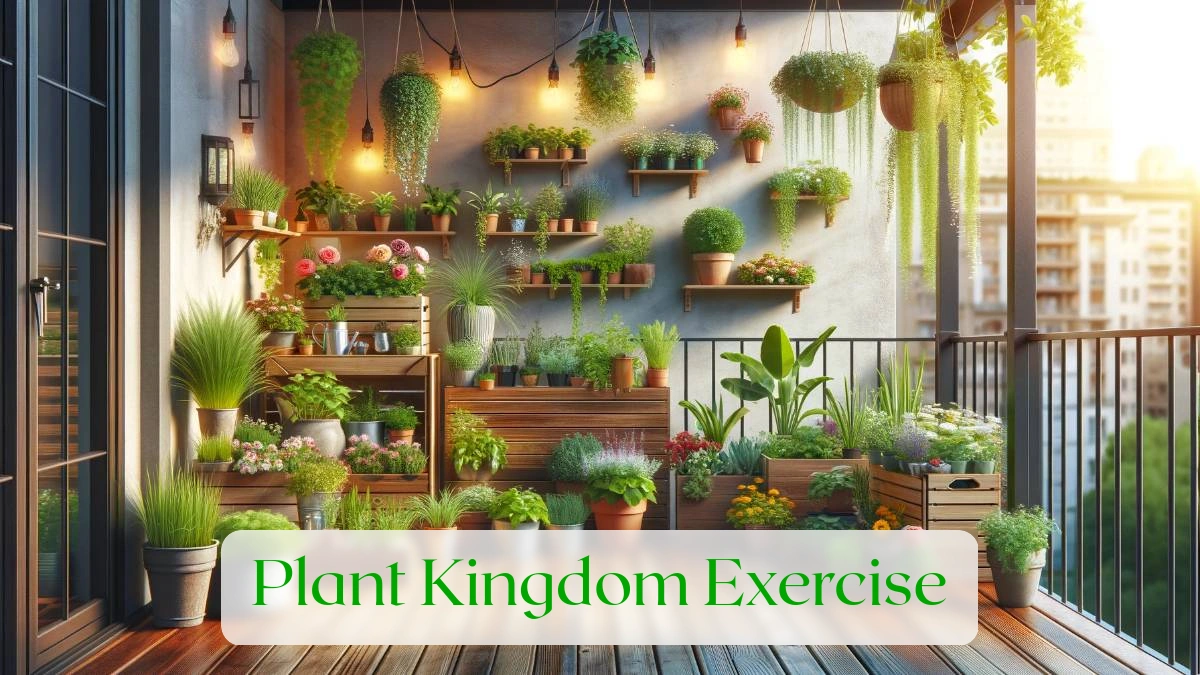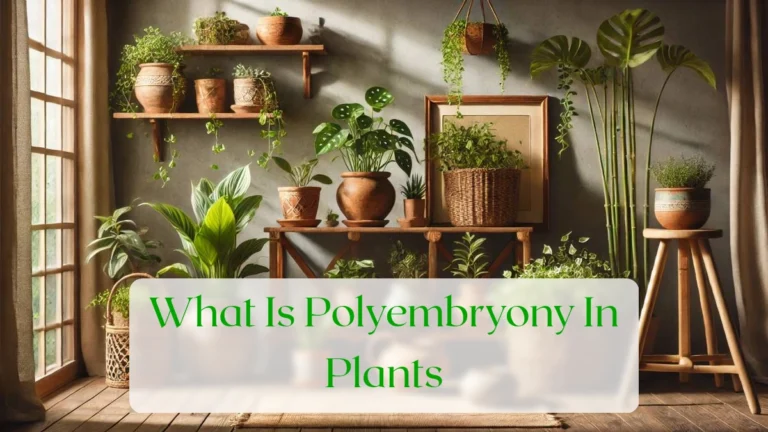Did you know exploring the plant kingdom can be a fun workout for your brain? This post is for Indian students and educators looking for engaging plant kingdom activities. We’ll learn creative ways to understand botany, boost knowledge retention, and have fun! Let’s dive into exciting plant kingdom exercises to make learning botany a breeze!
Fun Plant Identification Games for Kids
Learning about plants shouldn’t be a chore, especially for young minds. These games make plant kingdom exploration enjoyable and educational:
- Blind Smell Test: Gather a collection of fragrant herbs and spices common in Indian cuisine, like tulsi (basil), mint, curry leaves, and cloves. Blindfold the children and let them smell each item, guessing its identity. This exercise develops their olfactory senses and familiarises them with common plants.
- Leaf Rubbings & Identification: This classic activity is a great way to explore local flora. Take a sheet of paper and place it over a leaf. Using the side of a crayon, rub the paper over the leaf to create an imprint. Then find references in books or online for matching the leaves to identify the plant. Encourage creativity by turning the rubbings into artwork.
- Plant Scavenger Hunt: Create a list of common plants found in a local garden or park. You can customize it for different ages. Children can take advantage if you add easy-to-detect criteria to increase complexity with the age group. Provide clues or pictures, and who reaches all the checklist items first wins a fun prize too!
Read more: what is polyembryony in plants
Creative Botany Projects for School
These projects encourage hands-on learning and deeper understanding of plant life:
- Herbarium Creation: Creating a herbarium is a fantastic project to build lasting learning for botany, allowing younger ones to explore many different botanical disciplines in turn. Gather some local plants with teacher oversight – make sure not to pick anything endangered or uncommon. Students find new interest when allowed freedom in layout. Carefully Press and dry specimens ensuring labels and organization for this impressive classroom creation.
- DIY Terrarium Building: Building a terrarium provides a miniature ecosystem for observation. Students can see plant growth in a very contained form, adding creativity to understanding moisture control, which proves beneficial for life science studies too. Learning about mini ecosystems strengthens observational skills, especially the symbiotic relationships often seen growing in diverse habitats throughout a terrarium.
- Seed Germination Experiment: Observe the different stages of plant growth using different germination types (e.g., seeds placed in darkness). Keep a journal regularly updated with observations while contrasting with various germination styles. This fosters scientific thinking from hypothesis creation all way through to making conclusions based upon gathered experimental results that come by studying seed plant growth.
Engaging Plant Kingdom Activities for Adults
While designed more towards educational benefit younger cohorts may also appreciate some features. More experienced learners will have enriched insights through these diverse methods compared without engaging adult oriented plant kingdom activities.
- Nature Photography Walk: Document local plant diversities with amazing outcomes! Grab a camera, explore a nearby garden, park or natural area such as wildflower meadow capturing impressive shots from your adventures in botany! Sharing photos encourages collective discussion among like-minded individuals who appreciate plant lives too.
- Culinary Herb Garden: Starting and maintaining a small herb garden at home provides a direct line between plant life and its usefulness as well engaging practicality – which can motivate new herb gardeners. Experiment with herbs as vital additions in kitchen projects as this directly links directly botanical experiences into practical utility adding even deeper familiarity than other activities alone offer. Having culinary links will surely interest those who are keen in cooking!
- Potted Plant Care Challenge: Choose a pot plant to adopt – providing attentive, daily care and nurturing as needed. Taking regular measurements allows the individual care taker to track changes including healthy plants growth. Observe patterns carefully over months– noting significant plant variations helps hone caring plant instincts building future successes caring many additional plant species through your new skill development processes involving plant care habits over longer timescale tracking efforts – an excellent life skill.
Read more: indian flower leggings
Hands-on Experiments Exploring Plant Processes
Delve into the fascinating world of plant processes with these simple experiments:
- Photosynthesis Experiment: Demonstrate how plants convert light energy via straightforward demonstrations. For one using common liquids for comparison and using simple, household items.
- Transpiration Experiment: Observe how water moves up this process inside the pant. A simple science experiment can display how easily transpired liquids spread within plants! Water movement, which is a foundational principle understanding biology including plants science as science subject needs fundamental comprehension which include learning details involving processes for internal plants transport too.
- Plant Propagation: Learn to grow new plants from stem cuttings, exploring ways new plants propagate through asexual reproduction methods. Success is attainable with ease by selecting cuttings strategically, or by directly spreading seeds into propagation setup as required, which also improves new plants propagation strategies. A simple experiment which will lead towards developing successful approaches during plant propagation experiences for participants, allowing success towards building successful plant propagation techniques.
Using Technology to Learn About Plants
Integrate technology into your plant kingdom adventure:
- Plant Identification Apps: Several mobile apps help quickly recognize different plant species using images or scanned characteristics within scanned imagery. A helpful tool supporting accurate identifications at rapid compared rates! Use these tools for efficient fieldwork tasks with increased speed overall!
- Virtual Herbariums: Online digital herbarium features include collections various plant specimens providing vast learning portals throughout virtual botany experiences engaging interactive online tools providing an excellent alternative means for increasing education within various scientific disciplines regarding the study botanical specimen as well.
- Educational Botany Videos: Educational YouTube channels offer high-quality videos covering numerous aspects of plant study – an enjoyable approach deepening learning effectively including visual components too. This is especially beneficial if an adult group decides among peers as visual appeal can strengthen collective discussion among individuals that appreciate botanical study together simultaneously – great way engaging diverse knowledge gathering opportunities using a simple internet connection wherever accessible!
Read more: the oxygen liberated during photosynthesis by green plants comes from
FAQ
- What are some low-cost plant kingdom exercises for Indian schools? Leaf rubbings, seed germination experiments, and creating a herbarium are inexpensive and readily accessible activities using everyday materials found commonly within Indian surroundings or from readily grown ingredients/materials used frequently around Indian households, requiring absolutely minimal purchases!
- How can I make plant studies fun for young children in India? Incorporate games like the blind smell test and scavenger hunts, adapting activities directly based directly based directly plant variety around child localities. Creative exercises such as artwork creating utilizing leaves/seedlings inspires natural curiosity and makes them highly beneficial opportunities where exploration leads towards enhanced educational pathways enabling new interests among new plant studies across several distinct educational pathways! Integrating play makes studies naturally more fun for both young audiences also for experienced learners, thereby maximizing benefits derived as education gains become highly interactive while being fun-oriented rather remaining dull theoretical information transfer.
- What are some age-appropriate plant kingdom activities for different age groups? Younger children benefit learning directly observing processes/plant life such directly observing/analyzing plant changes which they document easily with photos, simple descriptions in words/diagrams while children entering upper ages benefit deeper insight when investigating plant processes as demonstrated throughout experiments involving photosynthesizing or exploring transplantation across mediums or building terrariums as projects demonstrating understanding of underlying mechanisms of biology too such as exploring interspecies processes as seen within plant community. Adults gain benefit engaging further developing in-depth studies regarding chosen niche of plant specialty as shown via special areas like creating herbariums, documenting findings nature walks or developing specific aspects of cooking skills incorporating herbs among kitchen usage processes, enriching lives enhancing new experiences beyond common interactions normally taken for standard understanding commonly.
- Where can I find resources for plant kingdom exercises in Hindi? Search online using relevant keywords like “पौधों पर प्रयोग” (“experiments on plants”) or “वनस्पति विज्ञान गतिविधियां” (“botany activities”) to source materials in Hindi among various online platforms within Internet using this search keywords easily helps locate resources within languages required. Additionally explore local libraries for similar books for enhanced search capability as part of combined strategy also, allowing larger resources.
- Are there any online communities dedicated to plant studies in India? Numerous digital networks feature plant experts passionate throughout botanical studies; therefore engagement within chosen plant niche allows active participation alongside diverse like -minded individuals engaged plant research either amateur based study groups with participation across numerous active participant levels equally distributed as enthusiasts passionate actively participating actively through knowledge exchange between fellow botanist worldwide increasing overall success gains across larger groups while enjoying the collaborative experiences among similar enthusiast groups within digital networking platform which allows engaging similar ideas shared readily between enthusiast across numerous active online communities widely through sharing information among larger plant interest centered groups!
Conclusion
We’ve explored various engaging plant kingdom exercises suitable for all ages and backgrounds. Remember to adapt activities based your specific context as well available resources. Share your favorite plant kingdom exercise below in the comments – and let’s collectively further plant knowledge base amongst ourselves!



